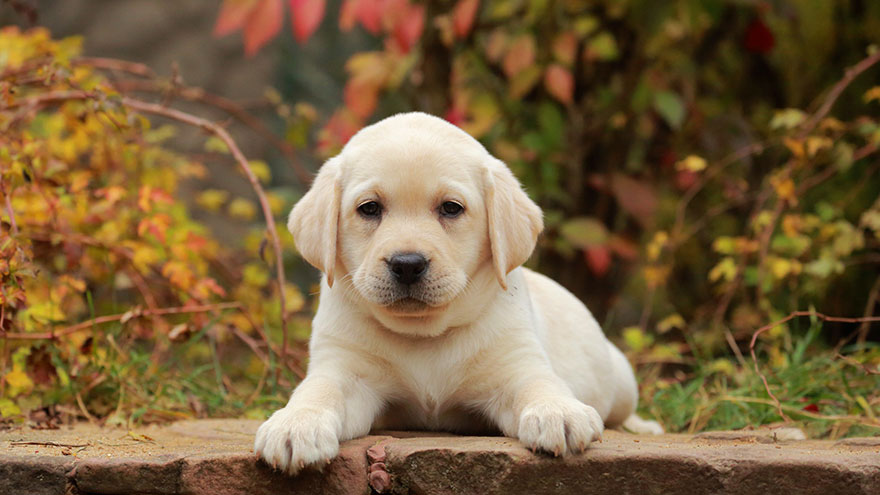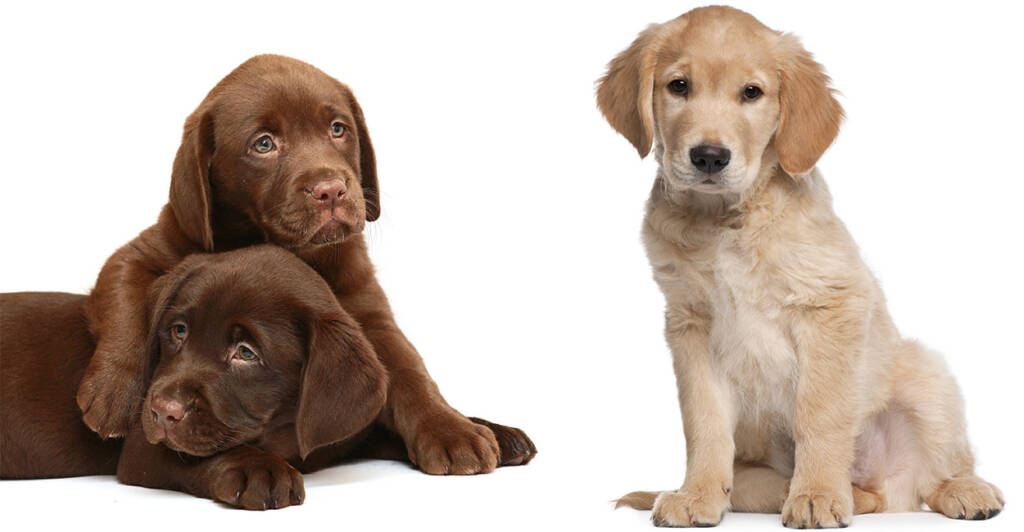Training Labrador of different ages and stages: Do you have questions about how to train your Labrador puppy or when to begin training your puppy?
You don’t need to worry. This article will provide you with an overview of what your Lab puppy is capable of learning at certain months.
Many tricks are easily learned by Labrador retrievers, which are well known for being smart dogs. Labrador owners may find themselves getting carried away with puppy training because they are generally so eager to please.
However, make sure you know what your Lab can and cannot handle learning at specific ages and stages of their lives to ensure you do not overwhelm or underwhelm them.
While no two trainers will ever agree exactly on what the stages of training these little Labradors are, an approximate Labrador puppy training schedule will give you a general idea of what to expect from the pup at each stage.
0-8 Weeks | Training Labrador of different ages and stages
Since Lab puppies don’t need training for the first two months of their lives, it is not necessary to train them.
From sleeping and drinking milk to opening their eyes and learning how to walk, they will be occupied with learning the basics of life at this stage.
As a result, you do not have to worry too much about puppy training since they are still learning about the world. Instead, just enjoy spending time with them.
2 Months | Training Labrador of different ages and stages
Your Labrador should learn how to follow you. Call your Labrador puppy’s name as you walk away from them. Pet them or give them a treat when they reach you, and then repeat.
In addition, you should teach your puppy how to “recall”. When there is a distraction, your dog can be taught to come to you even when he is distracted. To get your dog’s attention, you can use a whistle. Offer them treats and rewards to encourage them to ignore other distractions.
Moreover, your Labrador needs to learn how to socialize with other people and dogs every day. You can do this inside and outside the house.
During this stage, your puppy may want to bite everything in sight, so you have to discourage this behavior.
Additionally, you can teach them how to take food from your hand without biting you or snatching it from your hand.
However, you must remember that you shouldn’t expect too much from your puppy at this stage, nor should you correct it.
Labrador retriever puppies are like young children in that they are impulsive, have little self-control, and have a short attention span.
As a result, you must be patient and let them be sometimes during this stage of their puppyhood.
2 ½ – 3 Months | Training Labrador of different ages and stages
Make sure that your Labrador puppy learns how to walk on your left side and not to run in front of you as you walk him every day. Clickers are a great tool for teaching him this. You should also continue to train him to remember things.
The socialization skills of children should be maintained at an early age. You need to discourage puppies from biting for a while, as they are still learning to control their urges.
It is also possible to teach your Lab pup to use their nose to touch your hand. This training cue is important because it teaches your Lab that an outstretched hand is not a threat.
It is important to train your Labrador pup at an early age to do to prevent behavioral problems from escalating.
In addition to retrieving, you can also begin teaching your Labrador retriever this skill at this stage. Give them an item that they can chase and retrieve for you.
3 – 4 Months | Training Labrador of different ages and stages
There are several Labrador puppy training cues that you need to continue at this stage, including recall, socialization, retrieval, and bite inhibition. It’s important to practice these lessons as frequently as possible in your Lab.
If you walk your Labrador retriever more often, and if they understand when their bathroom schedules are, you may notice fewer accidents at home.
During this time, your Labrador retriever may also be at the peak of wanting to bite everything, so be firm and consistent when training.
Your Lab can also be trained to enter their basket or bed. Once they enter the basket, you can reward their obedience by giving them the treat. Repetition is necessary until your dog doesn’t need the treat to do it. The simple act of patting your Labrador on the head will be enough to reward him once he has mastered the trick.
Additionally, you can start teaching them some of the classic tricks. Introduce them to three different positions, such as sitting, standing, and lying down.
You should only teach one trick at a time to your Lab pup, however. Make sure they master one before progressing to another.
It is important to repeat each newly learned trick each day and to take a day off before teaching the next one. By doing so, you can reinforce the lesson you were trying to teach them.
4 – 5 Months | Training Labrador of different ages and stages
It is important that, by this age of your Labrador’s puppyhood, your dog has mastered recall, bite inhibition, and socialization. Do not forget to remind them about the basic tricks that they learned (e.g., sit, down, etc.).
Your 4-month-old Labrador puppy should also be potty trained by now. However, you should still be patient with your pup since accidents may still happen, especially if your Lab has been cooped up indoors for too long.
You can also teach your Labrador puppy how to heel for a short duration. Once you feel confident that they are good at heeling on command, try to add a few distractions to challenge them. Make sure the distractions are mild.
5-6 Months | Training Labrador of different ages and stages
At this stage, concentrate on training general obedience. It is best to advance the “sit” and “heel” commands gradually. If necessary, you can also incorporate some distractions into the training.
Ensure that your dog listens to you and does not pay attention to the distractions around them, so be careful not to shock them with distractions. Introducing distractions gradually will help.
For example, if you are teaching them to sit and stay, you can use mealtime as a practice time. Tell them to sit and stay while you slowly place their food bowl down. The word “stay” should be repeated and they should sit down. You can put the food bowl down once they don’t jump at the food and show control over themselves.
6 Months | Training Labrador of different ages and stages
Since your Lab puppy has grown into a very energetic adult, you can start raising your expectations.
When your Labrador retriever is six or seven months old, it is too big, so it should begin learning the basics of training and manners. It should also learn more complex behaviors over time.
You can teach your Labrador puppy to heel for longer distances past all sorts of distractions, for instance. Besides teaching them to sit and stay, you can also teach them to do it while other dogs are playing nearby.
Your Own Labrador Puppy Training
Labrador puppy owners and trainers hold differing opinions about when to begin training a Labrador puppy.
Bear in mind, however, that there is no right or wrong answer here since it ultimately depends on you and your little Labrador.
Train both you and your puppy at a pace that your Lab is comfortable with, and keep the training fun.
In summary
Patience and consistency are the keys to training your Labrador puppy. As you follow the guide above, you should understand that your puppy is like a child. It will take them some time to get used to it, but once they do, it will be worth the wait!
What is the best age to train a Labrador?
What Age to Start Training Labrador Puppy. Puppy training should start very early–as early as 8 weeks old. If you wait until your dog is older, say 6 months old, you might regret it. “The most critical learning period of a dog’s life is the first six months,” says Robert Milner of Duckhill Kennels.
What age are Lab puppies the naughtiest?
The chances are your dog has a few naughty behaviors. Most dogs pick up a few bad habits along the way, especially if their owners are inexperienced. The last two tend to feature most strongly in the first eighteen months. But the first two can occur in Labradors of any age.
How long is a Labs puppy stage?
Puppyhood. This period of a dog’s life is often called the juvenile stage. It lasts about 6 months according to most people’s timeline of “having a puppy”. You can expect your Lab puppy to be high-strung.
What should I expect from my 4 month old lab puppy?
Most puppies at four months of age are pretty much potty trained. However, if left for too long, they will still be prone to accidents. The biting usually starts to subside now, and many four-month-old puppies can mouth at your hand without hurting it.
Are Lab puppies hard to train?
Typically, labs are easy to train. They are a very active breed, however, and if they don’t get enough regular exercise, training becomes more difficult. Dog owners should be aware of and respect their breed’s natural instincts and give them outlets to satisfy these instincts.






